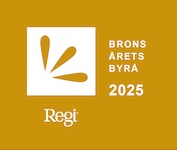Adapting to the hiring field is important, not just when finding a perfect match for the company but also when building the employer brand. To do so in the coming year, there are a few trends to keep an extra eye on.

Adapting to the hiring field is important, not just when finding a perfect match for the company but also when building the employer brand. To do so in the coming year, there are a few trends to keep an extra eye on.
Current, former, and future employees are all powerful influencers of a company’s reputation and brand, in which the hiring process plays an important part. Although companies often overlook this factor when thinking about their employer brand, the way of recruiting is a valuable opportunity to build relationships. But how is this done? And what’s important to think about when creating a holistic recruitment process? Gathered below are four trends to keep in mind for the future:
- Flexibility
What felt like a temporary solution during the pandemic is now becoming a permanent part of the hiring landscape. As some companies are decreasing their office space, remote working will continue to be on the agenda for the coming years. This doesn’t just affect the people working in the business, but also those applying for jobs, as recruiters don’t need to address the issue of geography any longer. In addition, job seekers aren't limited by closeness, and potential jobs therefore increase significantly. Realtid reports in an article that being able to work from home is becoming an important factors for candidates in recruitment processes, meaning that companies need to make their employees’ trips to work worthwhile.
- Open talent
But the matter of flexibility doesn’t stop there. As workers today are requesting more flexibility in their careers, the open talent model should be on every recruiter’s mind this year. Harvard Business Review explains how the open talent model is project-based or temporary work staffed with workers not permanently attached to a specific company. Before starting a recruiting process, companies should therefore consider the level of firm-specific knowledge that is required for the project, if it’s recurring, and what the integration costs are of incorporating work from an open talent into the larger organization. What open talent offers companies are more flexibility, better access to talent, and resources that traditional hiring models can’t provide.
- Focus on skills
Having a degree is no longer as important as it used to be. In recruitment processes, many companies are moving away from degree requirements and experience attention, and instead focus on skill-based hiring. Klarna takes this one step further. They have started a program, focusing on recruiting people based on the candidates’ approach, attitude, and how well they match with Klarna’s values, rather than on their experiences or academic achievements. The program is based on studies showing how 89% of all failed new employments are rooted in that the employer and the employee have different attitudes.
- Diverse recruiting
Inclusion is one of the most important topics of our time. And perhaps it goes without saying, but to have diversity in the workplace you need to have a diverse recruiting process. Dagens Industri reports in a recent article that the most common factor to be discriminated against in a recruitment process is age, followed by gender. Some tips to make the recruitment process more diverse are to give more interview flexibility, consider the language in job posts, and get rid of technical assessments.









